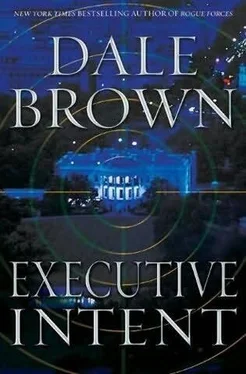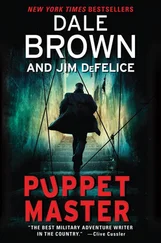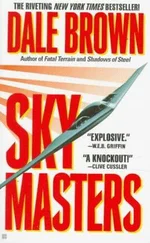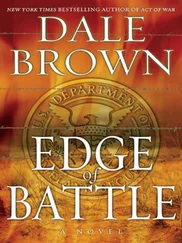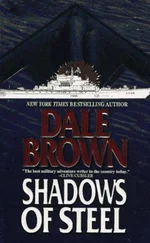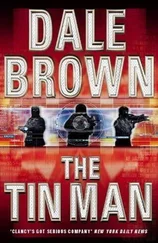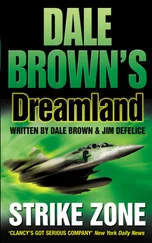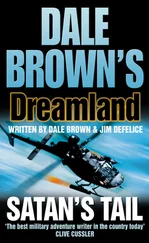The twelve-foot-tall perimeter fence was brightly illuminated. “Just as our intel said,” Whack radioed. “Roving patrol on the west side, guard towers at the corners. The objective is in sight.” It was right in the center of the compound, mounted near and below a large radome: a 150-foot-diameter steerable open latticework dish antenna, pointed almost straight up.
A lot of times, the first sight of the objective made commandos anxious and excited, and it was vital to squelch that feeling and stick with the plan. The most important thing was not to alert the Russians to the point where they would shut down the transmitter or inspect the antenna. They were already alerted to Whack’s presence by the inspector at the airport, and they had probably assumed this was his objective.
He moved to his planned entry point on the east side of the facility, the farthest away from the airport, then took a few moments to study the guard towers on the corners. They were the farthest apart here and, being away from the airport and the highway, the least busy. His telescopic TV sensor showed two men in one cab and one in the other, so he chose the area closer to the tower with two men-the odds were better that the one guard in the other tower wouldn’t be looking in his direction. Whack also changed batteries-the first set was down to 15 percent. He would enter the facility with fresh power in case he needed to bug out fast.
“Here goes nothin’, boss,” he radioed.
“Good luck, Whack,” Patrick said.
Taking a running start, he jumped just at the very edge of the illuminated area outside the fence, clearing it with ease. He rolled as he hit the sandy hard-packed dirt inside the compound, leaped to his feet, and dashed as fast as he could to the closest spot of darkness at the inner edge of the illumination area he could find. He stopped and listened for any sound of alarm or pursuit. His escape plan was to jump out of the compound to the north, run downhill toward a riverbed about a mile away, then hide in a small cluster of farms if necessary. But so far he didn’t need that plan.
“Made it, Muck,” he radioed. “No sign of alarm.”
“Don’t get cocky, Whack,” Patrick said.
“I know, I know,” but he knew that, except for the exit jump, the hard part was over.
The inside of the compound was almost completely dark except for pole lights mounted near fire hydrants or outside entrances to some of the buildings, and it was easy enough to avoid those areas. His sensors tipped him off to any personnel or patrols nearby in plenty of time to take cover. There were guards everywhere, but no one seemed especially vigilant. That was often the case: When the number of guards increased, everyone tended to relax a bit more, assuming that the added numbers made everyone more secure.
Whack reached the antenna within two minutes of jumping the fence and found the service ladder. He carefully and quietly popped the lock off the protective gate, opened it, extended the ladder, and started climbing. His armored feet barely fit between the rungs, so he just used his arms to crawl up the ladder, going about three times the normal climbing rate. He made the twenty-story climb in about sixty seconds. Once on the bottom of the dish, he identified the framework structure that also attached to the transmitter-receiver module in the center of the dish, climbed onto it, and was on the rim of the antenna dish in no time.
The antenna had four long arms holding the large transmitter-receiver module in the center of the dish. In the Tin Man armor, it was easy to climb across the arm to the module. Hanging by one arm, he retrieved the signal analyzer-transmitter box from his backpack and attached it to the side of the center module. It would pick up any signals broadcast by the antenna, store them in digital memory, and then burst-send them to a waiting CIA satellite for downloading and analysis.
He reversed his direction, climbing back down the pedestal service ladder. He closed the gate, then pressed the hasp of the broken lock down into the lock with his microhydraulically powered fingers until the hasp jammed in place. Hopefully no one would notice the deformed lock until many days and at least one netrusion attempt from now-the first flyby of a Kingfisher weapon garage was in just eighteen hours.
Almost home free. He made his way carefully to his planned exit point on the north side. The terrain dropped away on the other side of the fence a bit more steeply, which might make it harder for pursuers to locate him. He also knew that there were probably motion or vibration sensors on the ground outside the fence, so he had to jump as far as he could past the fence and hope he didn’t set anything off. He lined up, took one last scan around for any sign of guards, dashed for the fence…
…and cleared it with plenty of room to spare. He landed a little inside the illumination zone, but he quickly rolled away, got to his feet, and dashed for the ravine. He ran all the way down the slope for about a half mile before he dove behind the biggest rock he could find and lay still, scanning for any sign of alarm or pursuit.
Nothing. Dead quiet. “Holy cowbells, boss, I think I friggin’ made it,” he radioed.
“Congrats, Whack,” Patrick radioed back. “Now concentrate on getting back to the lighthouse. Check your power level-it looks low from here.”
Whack checked and was surprised to find the second and last set of batteries already down to 40 percent. “There might be a glitch in the armor,” he radioed. “I think I’ll try staying nearer the shoreline to avoid all the steeper terrain.”
“Take time to do more scans,” Patrick suggested.
“Roger. On the move.” Whack made his way down the ravine to the freshwater stream that led to the Gulf of Aden, then started heading east.
It was easy going until Qadub. The fiesta and fireworks were over, but now the fishermen were working on their boats, getting ready to put to sea. Staying away from the lights from the wharves and piers meant moving closer to the highway, and it was getting a bit busier as dawn neared. Whack had to drop prone several times to avoid what he thought were people staring in his direction, and he considered digging a hole in the marshy sand a few times because he thought someone might come out for a closer look at what they thought they saw.
It took much longer than during the fireworks show, but soon he was at the eastern edge of the fishing community, almost clear. He was in a prone position once again. He listened, heard nothing, and then raised his head a few inches to let his sensors get a better look. Still nothing. He was at the edge of a baby-powder-soft sand beach at the eastern end of the fishing community. The highway curved rather close to the beach here, but it was empty right now. All he had to do was run about five hundred feet across the beach to the other side to a formation of huge boulders right at the ocean’s edge and he would be home free-after that, just an easy four-mile jog back to the lighthouse. Like a sprinter in the starting block, he crouched low, gave himself a countdown, yelled “Go!” to himself, and dashed off…
…and after four steps, he tripped over something lying in the sand.
“Ahhh!” a man shouted. Whack hadn’t seen the guy, sleeping nestled in the sand, covered in a rug, a bottle of something lying beside him. The man sat up, and Whack could see his eyes grow as wide as dinner plates. “Ma bifham la afham!” he shouted. He started to crawl away, still staring at the apparition in front of him in absolute terror. “Imshi! Imshi! Al-bolis! Al-bolis! Sa-iduni!”
“Crap!” Whack swore, and he sprinted away down the beach as fast as he could. He didn’t stop for about a half mile until he heard an approaching car on the highway, then found a good hiding place.
Читать дальше
